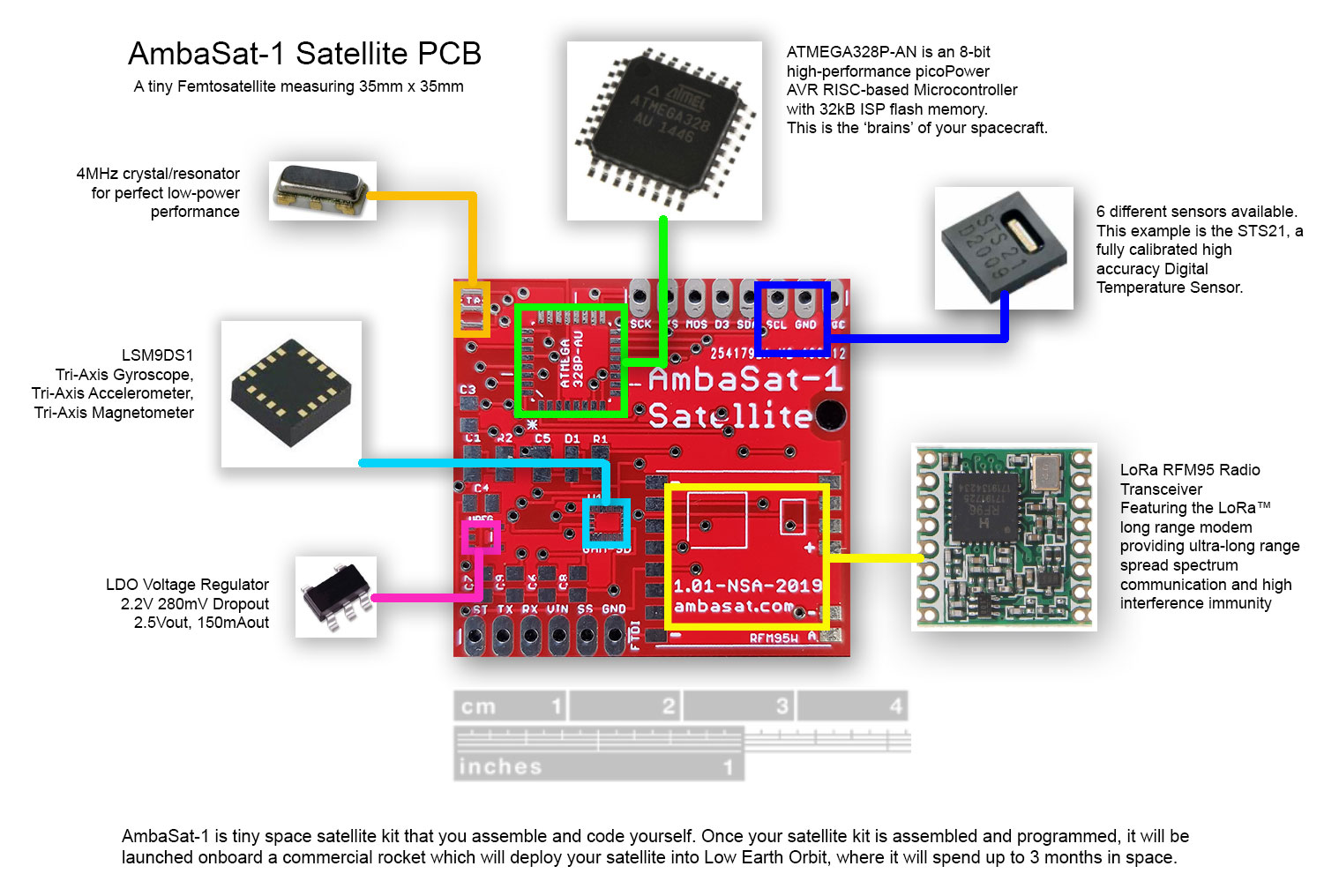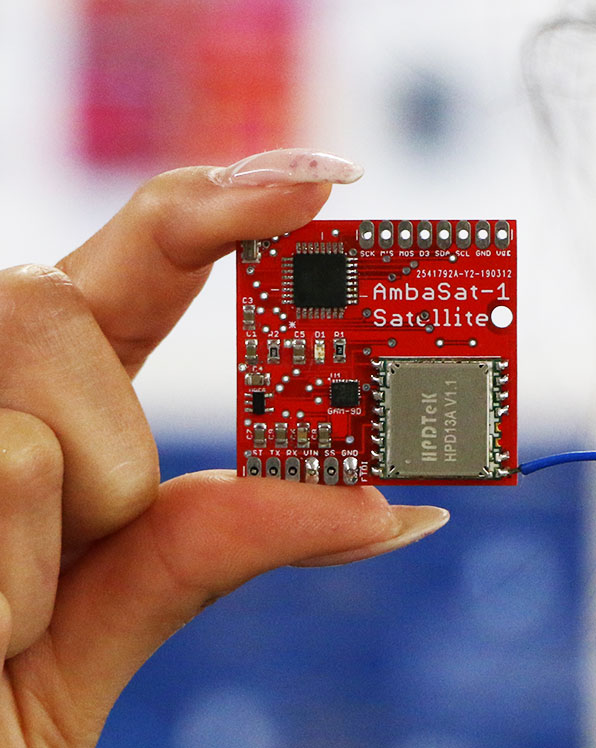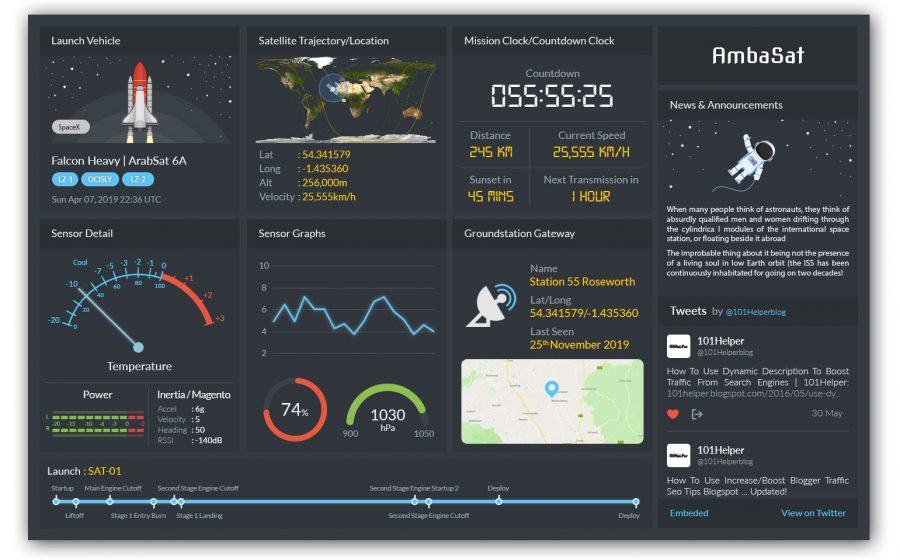Next year in space? Launch your very own satellite
While searching for interesting space gadgets (I also always gladly accept tips and suggestions), I came across a very exciting project. How would you like to be able to send your very own satellite into space? And it wouldn’t cost you millions of dollars or even hundreds of thousands of dollars; for less than 300 dollars and your own time and effort, you can have your own personal satellite called AmbaSat-1.
How does it work? You can find a description at www.ambasat.com. AmbaSat-1 is a micro-satellite. Basically, it’s an electronic circuit board with a surface area of 35 mm x 35 mm (about 1.4 inches x 1.4 inches). It includes a processor, various sensors, solar cells, a gyroscope, and a radio module. If you’d like, you can even solder the circuit board yourself; that’ll take about 4 hours and it’ll then save a few dollars. The individual AmbaSats will then all be packed together in a flying rack that will be launched into space (starting) in 2020, in order to then deploy the micro-satellites.
No worries, you won’t be producing more meaningless space trash. The AmbaSats will only stay at the planned altitude of about 250 kilometers (155 miles) for three weeks to three months and then they’ll burn up in the atmosphere.
If you order now, you’ll get your satellite around November 2019. However, then you will still have to program it. The manufacturer promises that you’ll be able to manage it, even if you’ve never programmed before – Ambasat-1 will help you learn. Then you send the circuit board back to England. It will be tested and finally installed in a container, a CubeSat, until the launch.
After your satellite reaches space on board a Neptune rocket from Interorbital Systems, you can use the Internet to track it. Depending on your programming, your satellite could transmit data from its sensors or perform some other task that you’ve given it.
There is one uncertain component in the project, however: the rocket that is supposed to carry your satellite has never been launched before. The manufacturer is planning the first orbital flight for the Neptune rocket for 2021. Of course, I already have an idea of what BQM-1 could do in space…


